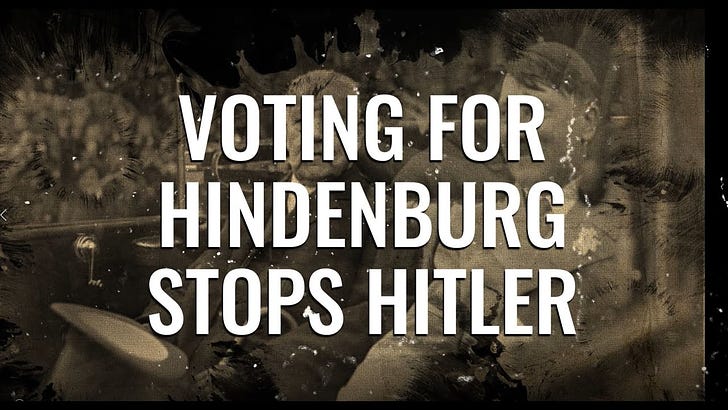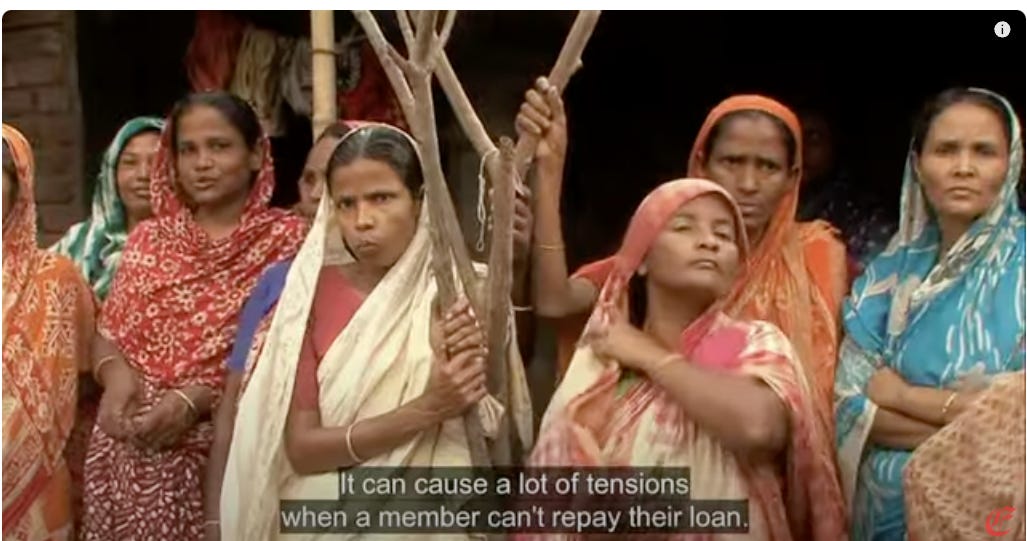dj_voight_kampff [he/him]
You really didn’t think it would be that easy to reject universal love, did you?
- 16 Posts
- 18 Comments
- dj_voight_kampff [he/him]@hexbear.netto
 1·5 days ago
1·5 days agoYes and they didn’t even bring up my unusually dismissed case, which I was worried about. Nobody at immigration tried to make friends with me. They also didn’t seem to know what Chapo Trap House is for some reason. 😒 Gonna talk to those guys a lot more though so there is hope for you that I fail the Voight-Kampff Test and prove you Right Online.
So I take it you accept the L? Fine with me, take it as constructive criticism. Or it can just be another narcissistic injury that twists your personality further until you die.
- dj_voight_kampff [he/him]@hexbear.netto
 3·5 days ago
3·5 days agoSpine shivering bops for the whole community how gracious of you
- dj_voight_kampff [he/him]@hexbear.netto
 1·5 days ago
1·5 days agoIt must be easy to fantasize like this from your armchair while you profit off the refugee crisis as it washes up in the imperial core. When do you plan on actually doing something other than thriving in a fascist state though? Are you trying to delegate this task to other people? How does this work?
I mean if I know anything about your industry, the Lebanese refugee crisis is doing to be a huge windfall.
Removed by mod
Removed by mod
Removed by mod
Removed by mod
Removed by mod
Removed by mod
Removed by mod
Removed by mod
- dj_voight_kampff [he/him]@hexbear.netto
 2·6 days ago
2·6 days agoPing me too next time if you don’t mind
- dj_voight_kampff [he/him]@hexbear.netto
 21·6 days ago
21·6 days agoA group of women who were borrowers with the Grameen Bank
Mallika, a villager from Jobra explained the problems with the weekly repayments. She said, “I bought land with the money. But, then I found that I couldn’t earn that much money. I had spent the money. So I had to take a new loan to repay the old one.” Another villager Yasmeen said that the weekly payments forced her to take other loan. Eventually, she was indebted to five organizations. Other women who took loans, had to return to their local loan sharks in order to keep up with the weekly payments.
The group payments of these loans puts intense pressure on the borrowers to make their weekly payments because if one member of the group defaults, the other group members, who are in an equally precarious position, have to cover the defaulters loans. Therefore, the social pressure forces borrowers to use any means necessary, even local loan sharks, to find the necessary money to make these repayments, defeating the purpose of the Grameen Bank. Since the Grameen Bank was created to help borrowers not use usurious loan sharks.
This is no wonder, according to research done by QK Ahmed, 1189 of 2501 borrowers surveyed could not repay their loans on time. 72.3% of them had to take out other loans to make their payments. 10% had to sell assets that gave them productivity, like goats, in order to make their repayment. Another study sampled 1489 families from 15 villages. Only, 5-9% of the borrowers said they were better off after using micro-credit.
On top of the failures in helping their borrowers, Grameen Bank has also had serious issues with its corporate governance. Mohammed Yunus, the founder has been at the center of many scandals at the heart of his Grameen institutions, which forced him to resign in 2011. When Grameen Bank lost its tax exempt status, in 1998, he moved $100 million to another shell organization called Grameen Kalyan, and then loaned that money from Grameen Kalyan to Grameen Bank, in order to avoid paying taxes. His Grameen Yogurt business was found using adulterated milk in 2011.
Shortly before occupying his position as chief of Bangladesh, Mohammed Yunus was convicted of violating Bangladeshi labor laws with his other subsidiary Grameen Telecom. Bangladeshi law requires a company to pay five percent of its net profit to a welfare fund that could later be used for pensions. It seems that Grameen Telecom, in its haste to make profits, failed to create such a fund.
Despite, being disgraced and scandal plagued, he continued to be the object of praise and adulation in the West. He has been praised by the likes of Larry Summers and Bill Clinton simply because the Grameen Bank model perfectly fits in with the neoliberal consensus that the West hopes to impose upon the world.
Poverty in the third world is caused by underdevelopment and lack of societal infrastructure. Alleviating this poverty, which has been done successfully in China and Vietnam (to name a few), requires massive government intervention and government programs to change the situation. People in villages in Bangladesh are poor because there are no places for the masses to find decent paying jobs. That requires government investment to set up large scale industries that can employ thousands of semi-skilled workers to give them decent wages. In order to set up these industries, there needs to be large scale infrastructure investments in public roads and trains that will allow these goods to be moved efficiently.
The government also needs to invest in high-quality public schools to create a more skilled labor force for the next generation. On top of it, there needs to be social programs in healthcare and retirement such that one medical emergency doesn’t force a villager to sell her house.
Another Borrower from Grameen Bank in Jobra
But, since the 1970s, the Washington consensus managed by the dual institutions of the IMF and World Bank have been forcing third world countries, including Bangladesh to do the opposite. Since its independence, Bangladesh has been forced to:
[Dismantle big public enterprises.] Large mills were replaced by export processing zones, shopping malls, and real estate.
Export-oriented garment factories became the mainstay of manufacturing. Incidents like the Rana Plaza collapse in April 2013 showed the extent of cruelty and greed in these death traps.
Permanent jobs in factories were replaced by a system of temporary, part-time, outsourced, and insecure work.
The biggest source of foreign exchange has been remittances; existing side by side with a huge outflow of resources through the transfer pricing and profit outflow by foreign companies, and transfer of accumulated wealth by local business groups, legally and illegally.
The number of workers abroad is now more than the number of workers working in the country’s factories, who took this risky option because of job scarcity.
The feminization of the working class is another recent phenomenon, which happened because of a reduction of purchasing power and increase of job insecurity.
That has kept pressure on the families to work longer and to join the workforce with more than one family member, including children.
Energy resources and power have been systematically privatized. Power became a costly commodity and costs for the productive sector have increased, while energy security for the majority was threatened. All of this hurt the peasants; many had to join the labor market at home and abroad.
Land grabbing, occupying public spaces by private business, and deforestation have uprooted many. Rural branches of state-owned banks have closed down, squeezing the access to cheaper finance for rural people, and forcing them to go to microcredit, which has higher interest rates.
However, the philosophy of neoliberalism requires the government to keep a hands-off approach on all the infrastructure projects and social programs required for mass poverty eradication. The Grameen philosophy perfectly dovetails into the dastardly Washington Consensus. If poor people can be given enough loans and high interest rates, they can remove themselves from poverty. Anyone who fails this uphill battle, is at fault for not working hard enough to pull themselves up from their bootstraps.
As the new leader of Bangladesh, given his philosophy and closeness to the neoliberal institutions, it is unlikely that he will involve Bangladesh in large-scale projects with the Belt and Road initiative, which has been instrumental in developing much needed infrastructure in the most underdeveloped areas of the world. Instead, he is likely to follow Bangladesh into bigger and bigger macro-debt traps created by IMF and World Bank.
Mohammed Yunus at a Global Summit to spread his brand of propaganda
He will sweet talk on the importance of social responsibility while allowing big manufacturers to set up less than safe garment factories in Bangladesh, such as the one that collapsed in 2013. Most importantly, he will allow status quo to continue. This will allow him to be praised in the West as the new face of democracy in Bangladesh, regardless of the situation of the people within.
Yunus, Muhammad. 2003. Banker to the Poor: The Story of the Grameen Bank, p 69
Ibid, p 70













It looks like uncle sam is wearing red shorts and hose and is showing his hole am I seeing this right? Okay no those are definitely shoes